A panel discussion on how the Black community could engage the state for its empowerment was part of the People of African Descent Week which took place recently in Berlin. Panellists, including Berlin minister for justice, looked at how problems faced by Black people could be solved through community engagement with the government.
The historic People of African Descent (PAD) Week Germany, held on 28-30 November 2019 in Berlin, provided a unique opportunity for discussions on issues relating to the situation of Black people in the country.
The PAD Week, organised by Each One Teach One (EOTO) e.V. in collaboration with more than 30 partner organisations and attended by more than 250 participants, also marked the third anniversary of the UN International Decade for People of African Descent in Germany.
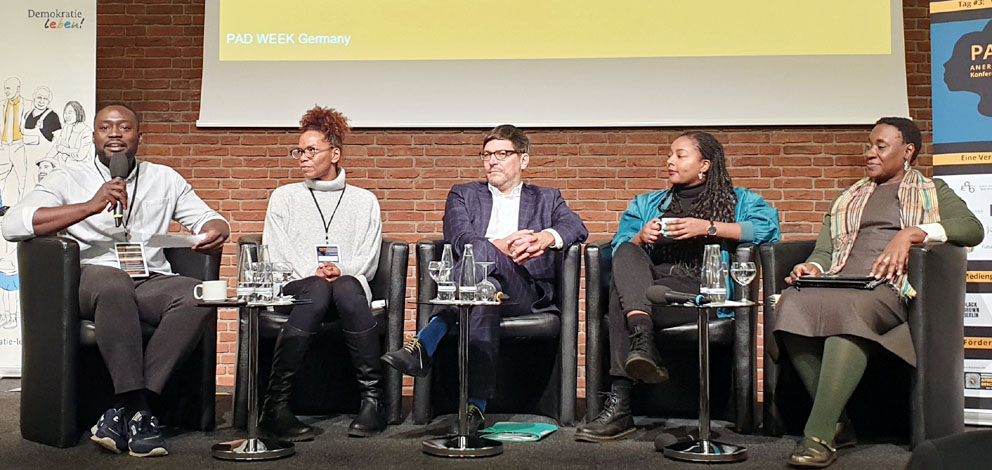
Among the issues discussed during the 3-day congress are the under-representation of Black people in the political decision-making process and deficits in the human rights protection of people of African descent, especially, how racism and discrimination affect them.
It was however certainly not all about complaints but more so about agency – exemplified by inputs, panel discussions and varied workshops held on how Black people in the country could overcome the identified hindrances to their individual and collective advancement in society.
A panel discussion on how the Black community could engage the state dwelt on the Berlin Consultation Process – an initiative under which the community interacted with the Berlin government and whose objective is to make discrimination against people of African descent more visible to the authorities as well as their resilience in the face of all odds.
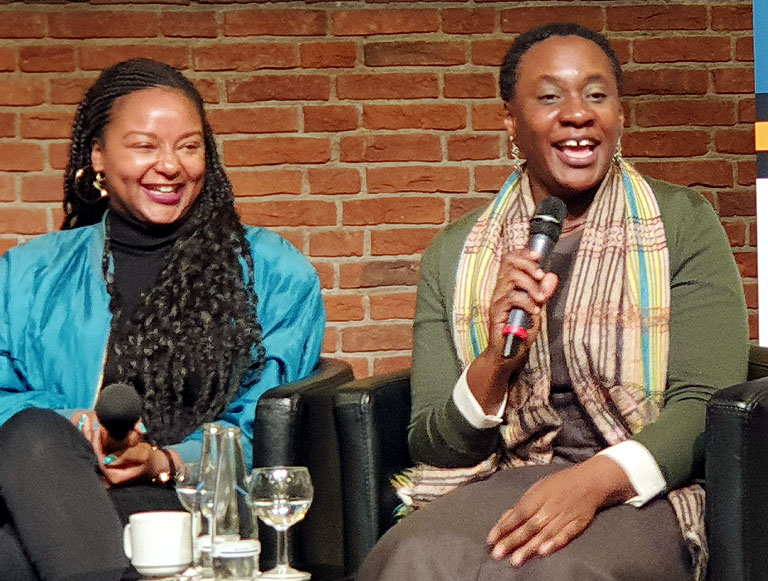
Prof. Maureen Maisha Auma made a presentation on the Berlin Consultation Process, which she conducted as a member of the scientific team of Generation Adefra-Black Women in Germany, entitled Diversifying Matters.
The presentation, under the motto “Making the discrimination situation and the social resilience of People of African Descent visible in Berlin”, was followed by a panel discussion moderated by Jeffrey Klein of EOTO.
The panellists were Prof. Auma, Dr. Dirk Behrendt, Senator for Justice, Consumer Protection and Anti-discrimination of the Berlin Senate; Aminata Touré, Vice-President of the state parliament of Schleswig-Holstein; and Saraya Gomis, Chairwoman of EOTO.
Discussants bemoaned the fact that there were no effective laws against discrimination against Black people. However, efforts to make Black people more visible had recorded some successes as they were now officially recognised by the federal government as one of the groups facing discrimination in the National Action Plan Against Discrimination, Auma, a professor of diversity Studies at the University of Applied Studies Magdeburg-Stendal in Stendal, noted.
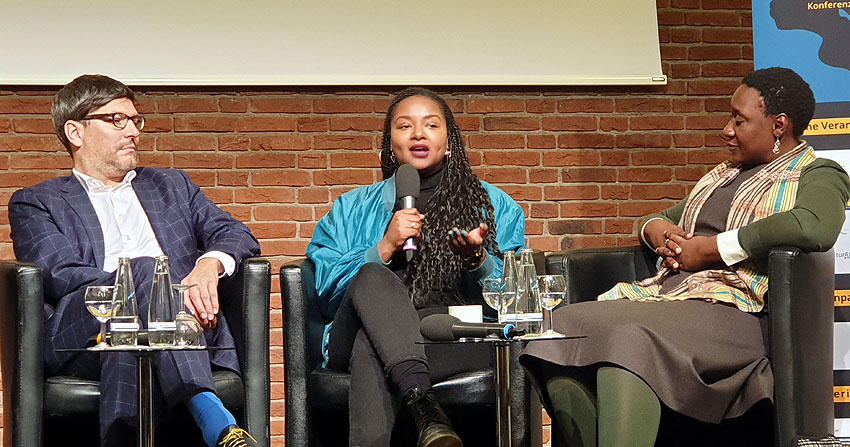
Mr. Behrendt talked about measures being undertaken or contemplated by Berlin, including strengthening Anti-Discrimination advisory support. He assured that there was a consensus in the governing coalition that Berlin had to take concrete steps to implement the International Decade of People of African Descent with concrete measures.
Berlin Senate was also working with the rank and file in public administration to sensitize them to the issue of discrimination and racism while pointing out that it’s difficult to prove that a public official has behaved in a discriminatory way towards a citizen.
Ms Auma, who has also been a visiting professor at the Humboldt University of Berlin’s Centre for Transdisplinary Gender Studies since 2014, talked about the activities of Black organisations in sensitizing the public to the issue of racism and discrimination by placing anti-Black dehumanisation at the centre of public discourse. The Berlin Consultation Process aimed, among others, to make the concerns of Black people known to those in authority.
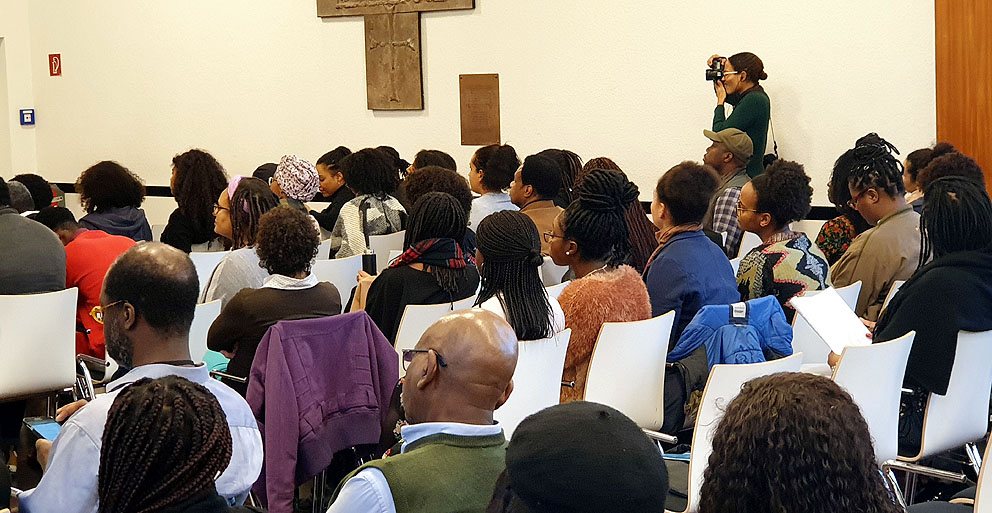
Aminata Touré said racism is condemned by all but there are no concrete measures to fight it or protect victims. She talked about her efforts in Schleswig-Holstein to give the issue more visibility. For example, she speaks at every opportunity about racism.
Touré, deputy president of the state parliament of Schleswig-Holstein and one of the three state parliamentarians of colour in Schleswig-Holstein, observed that there are also people of migrant origin in visible positions who avoid talking about racism.
Her efforts in Schleswig-Holstein include engaging the state’s ministry of the interior on police attitude and action towards Black people, the education ministry on the need to make racism an issue in schools and the ministry of finance for financial support for initiatives and projects on Black empowerment.
MP Touré observed that there was no appreciation of how significant the numbers of Black people were in the population which makes it difficult when trying to convince others within the system.
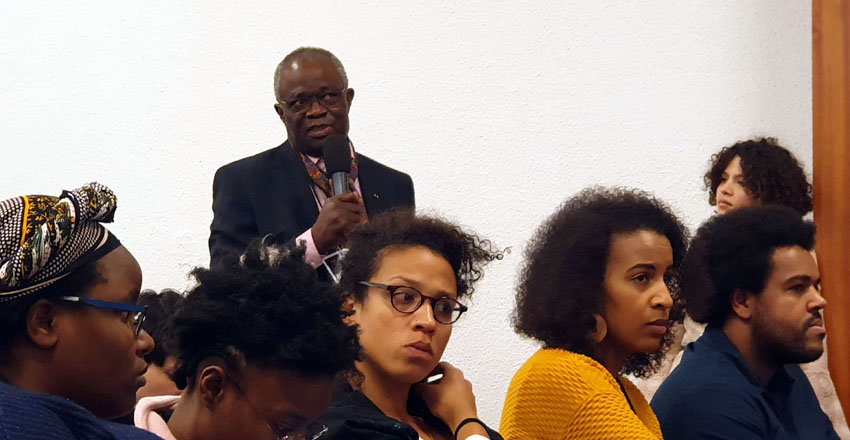
“The hope is that to make things happen take time. So, I am on it and will continue to exert efforts until we achieve concrete results,” she said.
Ms Gomis, former Anti-Discrimination Officer for schools at the Berlin department of education, observed that many community initiatives could not be done on volunteer basis because it’s a community that suffers from socio-economic marginalisation. For Black civil structures to be strengthened, more official support was needed, she added.
Intervening in the debate from the audience, Elombo Bolayela, a member of the Bremen legislature, said a lot had been achieved in the past 5 years on anti-discrimination but more efforts had to be made to increase diversity among public officials such as teachers and police officers.
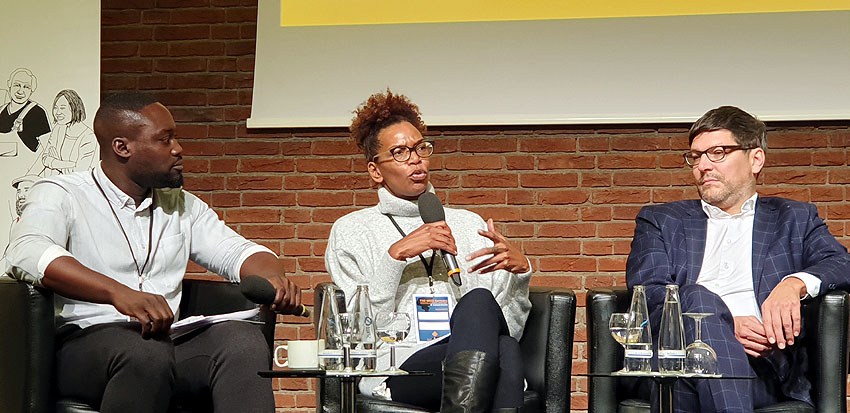
Responding, Behrendt said the objective of the Berlin government was to reflect the diversity of society in public institutions. “And there’re already concerns about the next generation of public officials which actually offers opportunities for all sections of society if they have the requisite qualifications,” he added. “Yes, people of colour should be represented in public institutions,” he agreed.
The panellists also agreed that the Black community need to be empowered more sustainably and that state institutions have to live up to their role to make that happen.
More than 35 groups representing people of African descent in Germany put together the PAD Week Germany 2019, whose work is expected to continue on how to sustainably empower the Black community in the country.
Femi Awoniyi
READ ALSO Germany: How Black people should deal with racial profiling
 THE AFRICAN COURIER. Reporting Africa and its Diaspora! The African Courier is an international magazine published in Germany to report on Africa and the Diaspora African experience. The first issue of the bimonthly magazine appeared on the newsstands on 15 February 1998. The African Courier is a communication forum for European-African political, economic and cultural exchanges, and a voice for Africa in Europe.
THE AFRICAN COURIER. Reporting Africa and its Diaspora! The African Courier is an international magazine published in Germany to report on Africa and the Diaspora African experience. The first issue of the bimonthly magazine appeared on the newsstands on 15 February 1998. The African Courier is a communication forum for European-African political, economic and cultural exchanges, and a voice for Africa in Europe.

































